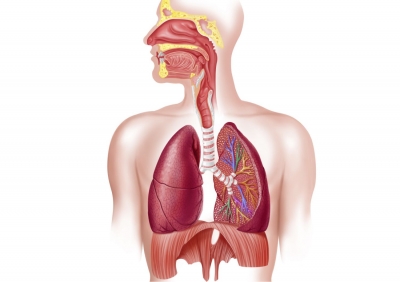
Every cell in the human body needs a constant supply of oxygen to survive. The lungs and airways of the respiratory system deliver this oxygen and also expel waste carbon dioxide.
We take in air through the mouth and nose into the lungs. Oxygen from the air seeps through the lung membranes into the bloodstream where it is carried to all the body’s cells. These cells burn oxygen to make energy, in a process called cellular respiration. This process causes cells to release another gas – carbon dioxide. This is carried back in the blood to the lungs to be exhaled.
Your respiratory system has built-in methods to keep harmful things in the air from entering your lungs. Hairs in your nose help filter out large particles. Tiny hairs, called cilia, along your air passages move in a sweeping motion to keep the passages clean. But if you breathe in harmful things like cigarette smoke, the cilia can stop working. This can lead to health problems like bronchitis. Cells in your trachea and bronchial tubes make mucus that keeps air passages moist and helps keep things like dust, bacteria and viruses, and allergy-causing things out of your lungs.
Mucus can bring up things that reach deeper into your lungs. You then cough out or swallow them.
Picture Credit : Google
